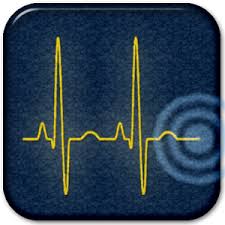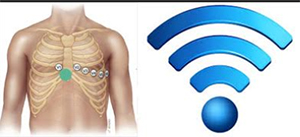Heart problems diagnosed by ECG
- Enlargement of the heart
- Congenital heart defects
- Abnormal rhythm (arrhythmia) - rapid, slow or irregular heart beats
- Damage to the heart such as when one of the heart's arteries is blocked (coronary occlusion)
- Poor blood supply to the heart
- Abnormal position of the heart
- Heart inflammation - pericarditis or myocarditis
- Cardiac arrest during emergency room or intensive care monitoring
- Electrical conduction disturbances
- Imbalances in the blood chemicals (electrolytes) that control heart activity.
STROKE AND VASCULAR DISEASES
The prevention and control of heart, stroke and vascular diseases remain a significant challenge for Australia. Despite major falls in death rates over the past 30 years and advances in treatment and care, heart, stroke and vascular diseases collectively are still Australia’s leading cause of premature death and disability. They are also the most expensive disease group in Australia in terms of health expenditure. Some groups within the community have much higher rates of illness and death from these diseases than others, especially Aboriginal and Torres Strait Islander peoples and those who are at a socioeconomic disadvantage. There is a continuing need to inform the public, health professionals and policy makers about the considerable scope for prevention, progress in treatment and care, and those people who may need extra attention.

A new report has found 80,000 Australians will be treated in hospital this year for heart attacks or chest pain - at a cost to the economy of $18 billion. A study commissioned by a pharmaceutical company, estimates 10,000 people will die from a heart attack in 2009. The research shows the cost to the nation from a single heart attack is $280,000, while for chronic chest pain lost productivity and treatment amounts to $74,000. Cardiologist Professor Derek Chew, who sat on the research panel, says there needs to be more emphasis on prevention and getting sufferers to hospital faster to increase their chances of survival.
Man and woman has different characteristics in reference to the hearth diseases Woman also should be alerted at the time of the menopause not ignoring the signs of a possible heart disease.






